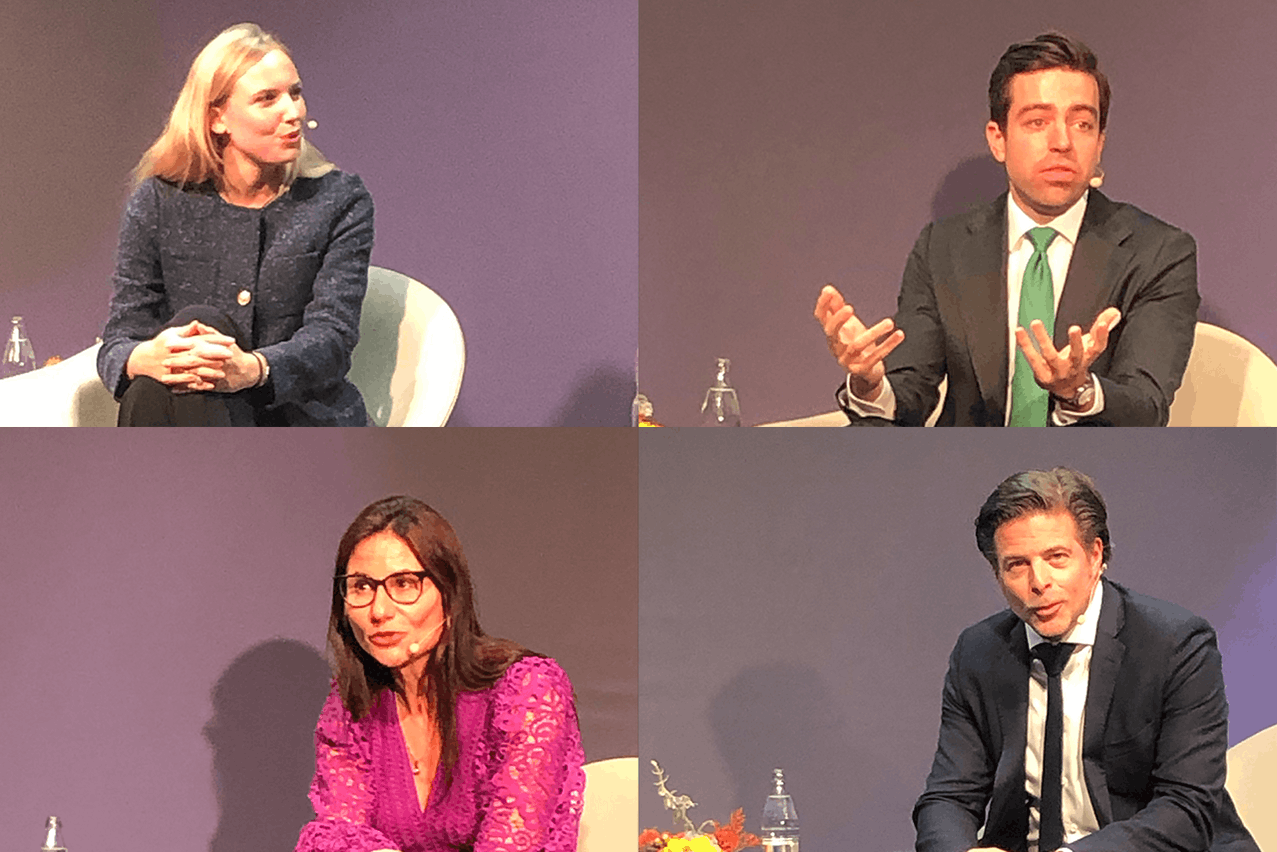“Perpetual funds are a game changer… as they are fully funded, your commitments are fully invested, you don’t have the J-curve and the capital calls, etc,” said Charlotte Boon at Blackstone. She pointed out that her firm launched a perpetual fund in January that has reached $6bn in assets under management in a private wealth channel that amounts “about a quarter” of the $1.1trn in assets at Blackstone.
“In the last two years, more funds have entered the market than in the entire 22 years prior,” observed Michael Hoffmann from Partners Group. In the business since 2001, he noted nowadays that it is not anymore about explaining what an evergreen fund is, but rather about investors asking whether Partners has an evergreen infrastructure fund.
We should call them semi-illiquid, because it’s a long-term investment
The comments came during a conference organised by the Luxembourg Private Equity & Venture Capital Association (LPEA) on 17 October 2024.
Who is buying evergreen funds?
Hoffmann reported that the split at Partners is 60% for private individuals against 40% coming from institutional clients. He thinks that the large involvement of institutional investors dispels the myth that evergreen funds are designed to only cater to private individuals.
Boon thinks that some of the attractiveness for the product lies with an absence of capital calls easing the operational and administrative process for private banks. She also observed a “shift in mentality… towards a return perspective.” She thinks that evergreen funds are not only known anymore simply for their flexibility and liquidity, admittedly two desirable attributes for retail clients. Interestingly, she said: “We should call them semi-illiquid, because it’s a long-term investment.”
Without being specific, Hoffmann claimed that Partners “makes a certain promise to our investors that we will be able to guarantee them a certain degree of liquidity,” while reminding that “things like gates are in place.”
On their geographical reach, at Schroders commented that evergreen fund sales are gaining traction not only in Europe but also in Latin America and the Middle East. She thinks that the interest coming from emerging markets comes from the liquidity of the product. Her enthusiasm went as far as suggesting that these funds may become the next ETF, a view shared also by Boon.
Boon stressed that Blackstone applies diversification principles not only in the investment portfolio but also ensures that a client does not own more than 10% of a fund. As for Partners, Boon noted that in a time of crisis, Blackstone applies a cap on redemptions whereby “[investors] will only get only 5% of the gross asset value of the fund… per quarter,” a provision that she called “a protection mechanism of the funds.”
Educating private investors
Contrary to when you are selling to institutional investors, Hoffmann said that general partners cannot talk to every single investor. Consequently, he sees long-term collaborations with reliable distribution partners as key. He explained that Partners uses playbooks, webinars and roadshows across several countries to visit banks’ advisors. Its after-sale activities include sending ad hoc reports whenever something happens and creating monthly reporting with some general comments on activities.
“Our clients want to know in which company we invest… why picking up this company… while some of them want to know about sustainability goals,” commented Gruneklee. She thinks that not doing it results in a loss of interest and sale traction.
Boon explained that Blackstone University, started 14 years ago, “brings private education towards advisors and relationship managers” and has resulted in the education of 20,000 participants on topics like private credit or private equity.
Are distributors enjoying the benefits of democratisation?
“[The industry] is still facing nationalism in Europe,” said Grüneklee. She explained that selling an European long-term investment fund (Eltif) all over Europe thanks to a European passport is matter of theory more than reality. She noted that regulators “are trying to push for their own [domestically managed] Eltifs.” It creates frustration all over “as you are losing time and interest from your investors.”
